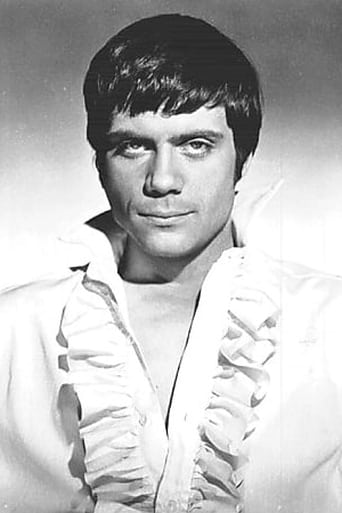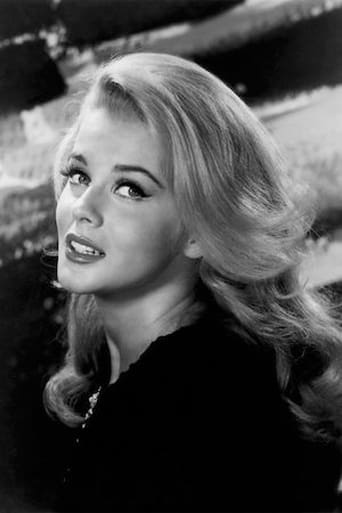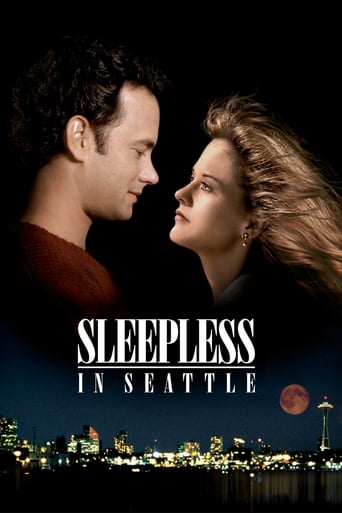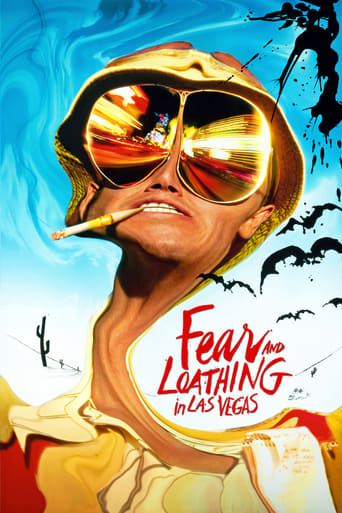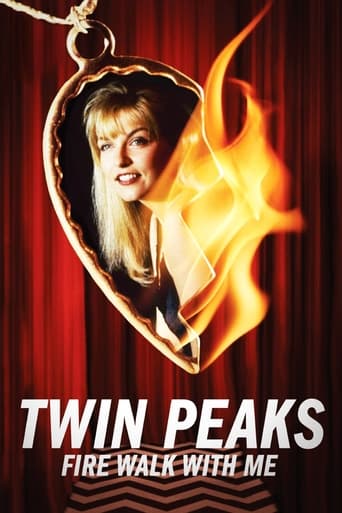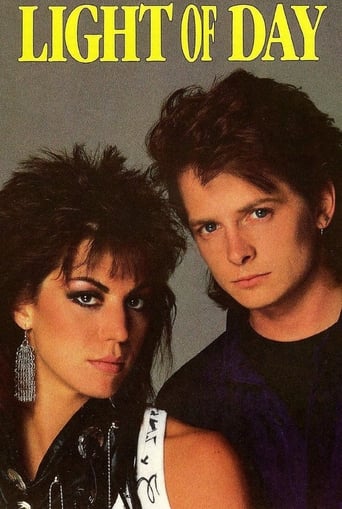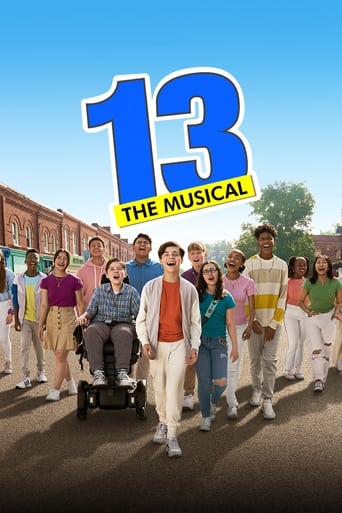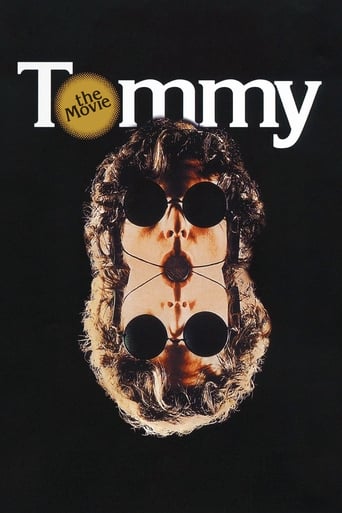
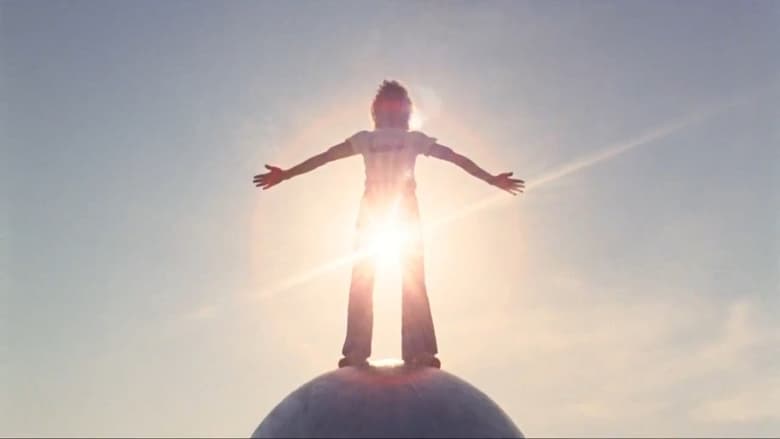
Tommy (1975)
A psychosomatically deaf, dumb and blind boy becomes a master pinball player and the object of a religious cult.
Watch Trailer
Cast
Similar titles


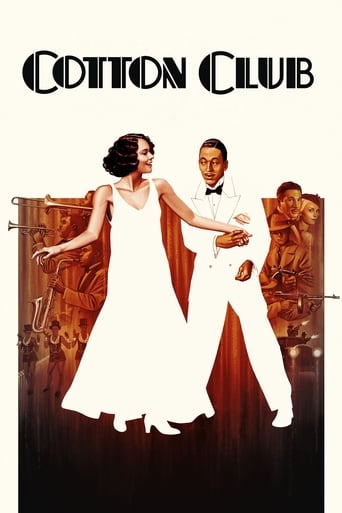
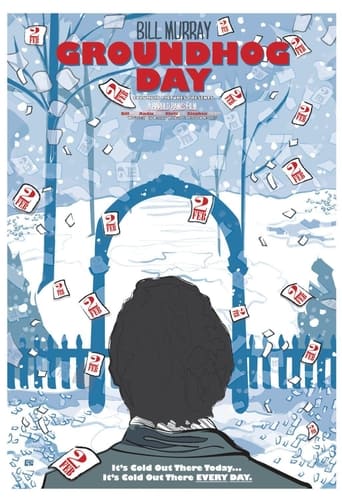
Reviews
Yawn. Poorly Filmed Snooze Fest.
Boring
Fun premise, good actors, bad writing. This film seemed to have potential at the beginning but it quickly devolves into a trite action film. Ultimately it's very boring.
A movie that not only functions as a solid scarefest but a razor-sharp satire.
The combination of The Who's concept rock/opera album Tommy and director Ken Russell in his pomp led to this visual, surreal, hallucinogenic and flawed musical film. There is no dialogue, just songs and music. It is also disturbing especially when Cousin Kevin and Uncle Ernie turn up.The film begins with Robert Powell as Captain Walker and Ann Margaret as Nora, a young couple in love. Powell goes off to fight in the war and his RAF plane crashes and he is missing presumed dead.Tommy was born on VE day and only knows his father through his photograph. Some years later his mother meets Uncle Frank (Oliver Reed) an entertainer in a holiday camp. He seems well intentioned but rather a murky character.One night Powell returns home and catches Margaret and Reed in bed together and after a scuffle, Reed kills Powell an act witnessed by young Tommy who ends up in a near catatonic state as with the cajoling of Margaret and Reed he loses his ability to see, hear and speak.The adult Tommy (Roger Daltrey) grows up deaf, dumb and blind but somehow manages to play a mean game of pinball. Margaret and Reed bring on all sort of quacks to cure Tommy be it religious, medical or charlatans. Leading to cameo appearances by Tina Turner, Eric Clapton and Jack Nicholson.As Tommy excels at pinball we have that famous duel with Elton John as the Pinball Wizard.However Tommy regains his senses miraculously and he becomes quite a cult that brings him and his family fame and fortune. However it is at this point the film loses its lustre and the music and visuals just seem to lose its impact.The film has a religious subtext, almost messianic as Tommy is reborn and gains a devoted following. It also has an underlying sexual and child abuse elements as well.The bold film is a British classic of 1970s experimental cinema thanks largely to Ken Russell at times unrestrained direction but he is in his element in marrying the music, songs and visuals.Ann Margaret probably did not realise what she was letting herself into when she agreed to this film. However she throws herself at with whatever Russell throws at her including being covered in baked beans and chocolate goo. She bagged herself an Oscar nomination for best actress and she also looks beautiful.The film starts at rather conventionally at first but quickly becomes an assault on the senses as Tina Turner struts her stuff as the Acid Queen and we have all sorts of striking imagery. Some other darker thoughts enter your mind when Paul Nicholas and Keith Moon start singing.Once Tommy can see, hear and speak the film loses its purpose and becomes less interesting. It is only now you think the film is self indulgent and over-long. There is a great sunrise shot at the end but gosh, how did Daltrey manage to climb that mountain with his bare feet?
I doubt I can add much to the many reviews already posted for Tommy, Ken Russell's demented film version of The Who's classic 1969 rock opera. It's not a movie that will please everybody. It's weird at every turn and feels very much like it was crafted by someone on psychedelic drugs. But it's also fascinating to watch (and listen to) and never boring. I've read many reviews here that talk extensively about Russell's creativity, the amazing sets, the various people performing The Who's music, and so on. All of that's great but I would like to focus on one specific person who makes the movie for me: Ann-Margret. Aside from being stunning throughout the picture (even when writhing around in baked beans and chocolate), she has one of the best voices in the film. Most importantly, she gives the film's standout performance. Most of the people in this are camping it up as much as possible or they seem to be high. Ann-Margret manages to match everyone's craziness while still bringing her own special charm and energy to her role. She was nominated for an Oscar for this (and won a Golden Globe). She's really fun to watch and, if you're a fan of hers, I strongly recommend you see this. Overall, the movie is not without its flaws but it's worth a look at least once. Be prepared, though, it's very 'out there' and never lets up, moving along at a fast pace from start to finish.
Ken Russell has always been an interesting director but also a very controversial one, for example Women in Love, The Devils, Mahler and The Music Lovers are great(though his biopics on Elgar, Delius and Debussy are even better where you see Russell in restrained mode) but Lisztomania and Salome's Last Dance not so much. As someone who does like The Who and thoroughly enjoyed the school production of Tommy with my sister as the mother, Tommy was a lot of fun. It is though the sort of film that will divide viewers, Russell does go overboard with the excess that are not always relevant to what's happening, Roger Daltry goes too overboard(also rather swamped by his colleagues), Eric Clapton is bland and while his voice is not that bad Jack Nicholson is one of those talented actors who is not used very well, verging on wasted actually. Tommy does look great though, the surrealist look is positively hypnotic and the photography is very well suited for the atmosphere. The songs are outstandingly catchy, with Pinball Wizard being the most memorable one, and orchestration-wise it is rousingly power-house, to have the Who themselves involved was a great idea that paid off well(though you do wish that Keith Moon wasn't the only one with a substantial character). Some parts are on the overblown and excessive side but there are a number of great moments especially Pinball Wizard, Acid Queen and Champagne(though it is somewhat true too that it is an example of excess). Likewise the story of the film and the musical is just absurd and knows it, seeing as Tommy is a satirical rock-opera that didn't mar things. Most of the performances are good, true Oliver Reed's singing ability is very limited(as is Keith Moon's actually) but he plays a real sleaze with perfect gusto. Moon himself is appropriately repellent. Tina Turner gives a bat-out-of-hell performance as the Acid Queen and Elton John is fun personified and provides some of the best singing of the film. Best of all is Ann Margaret, she has a great voice acts with energy, charisma and vulnerability. Overall, a very divisive film and not a perfect one but is very entertaining in a strange way. 7.5/10 Bethany Cox
"Tommy" started life in 1969 as an album by The Who. It was described as a "rock opera", and was indeed the first album to be so described, because the songs told a story, which was explained on the album's sleeve notes. It was not originally intended to be performed on stage in the same way as a Classical opera, but someone clearly thought that the story had dramatic potential, because it was turned into this film and later into a Broadway play. The title character is a young man who becomes deaf, dumb, and blind following a traumatic childhood experience, then later becomes a champion pinball player and is hailed as the Messiah of a new religion. I must admit that I am not a great fan of The Who's music; my main reason for watching the film was that it was directed by Ken Russell, one of the leading British auteur directors of the sixties and seventies. Not every film made by Russell was a masterpiece- some of them were far from being so- but he was generally interesting (as well as controversial), and he brought to "Tommy" his the vivid visual imagination which was a hallmark of his films. Early in his career, as in his famous "Elgar" documentary and even in something like "Billion Dollar Brain", Russell was capable of restraint and good taste, but by the mid-seventies he had developed a visual style characterised by bright colours and a fast-moving kaleidoscope of striking, sometimes shocking, images. The film is perhaps most notable for Russell's visuals; scenes which stand out include the Prologue, which tells the story of Tommy's parents, Group Captain Walker and his wife Nora, the "Acid Queen" sequence with Tina Turner, the bizarre scene involving a religious cult that worships Marilyn Monroe and the Pinball Wizard sequence in which the film's best-known musical number is belted out by a manic Elton John; the cast list names John's character as the "pinball wizard", although the lyrics of the song make it clear that this description refers to Tommy himself. (Practising Catholics might have been offended by the Marilyn scene, which parodies the Mass, although it should be pointed out that Russell himself was a Catholic). Russell also had a good eye for the eccentricities and inanities of British popular culture in the sixties and seventies, something shown in the holiday camp scenes, the Christmas party and the various advertisement parodies. The Who's lead singer Roger Daltrey plays the title role, and the other band members all make appearances, along with other rock stars such as John, Turner and Eric Clapton. The film is a "sung through" musical, without spoken dialogue, so it is surprising that Oliver Reed and Jack Nicholson, neither of whom were noted for their singing voice, were cast, Reed in the major role of Tommy's stepfather. The best acting performance comes from Ann-Margret as the sluttish Nora, a performance which won her a Golden Globe Award and an Oscar nomination. (Ann-Margret is only three years older than Daltrey, who plays her son, but in a heavily stylised, non-naturalistic film this does not really matter). My main problem with the film is that this type of rock music is not really the ideal vehicle for putting across a story dramatically, particularly a tragic story like Tommy's. (Besides being struck dumb, deaf and blind, Tommy also loses his father at an early age, is tortured by a sadistic cousin, sexually abused by a perverted uncle, and suffers problems with drug addiction. Even his role as the new Messiah fails to bring him satisfaction or happiness). The music, generally loud with an insistent rhythmic beat, designed to be exciting or exhilarating, lacks the variety to cope with the vast range of different emotions which would be involved in a story like this one. The film does manage to tell a story- one can always work out what is going on from the visuals alone, even if the lyrics are unclear or inaudible- but it does so without any subtlety, insight, sympathy or understanding. (The scenes in which Tommy is abused, making light of a serious matter, struck me as particularly crass).The traditional Broadway-style musical, and for that matter the traditional Classical opera, are much more effective narrative vehicles in this respect. As I said, The Who are not really my cup of tea, musically speaking, and those who love their music may well enjoy the film more than I did, although I note that there are several negative comments on here from those who describe themselves as Who fans. The visuals are striking, if occasionally garish or in dubious taste, but it is difficult to make a successful film on the basis of visuals alone. "Tommy" betrays its origins as a rock album, resembling nothing so much as a series of loosely-connected pop videos. Nice videos, shame about the film. 5/10
